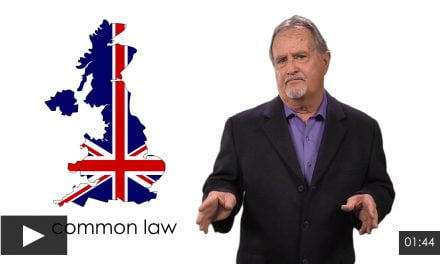Our proposal: Resurrect the California Department of Real Estate’s (DRE’s) Code of Ethics to standardize and enforce rules for ethical conduct for every licensed broker and sales agent.
Why: As professionals in a position of public trust, real estate brokers and sales agents are held to high ethical standards. Accordingly, in 1979, the DRE adopted Regulation 2785, known as the Ethics and Professional Conduct Code. This Code of Ethics established a set of rules for proper conduct by real estate licensees covering:
- unlawful conduct, related to fraud and dishonest acts prohibited by law;
- unethicalconduct, acts licensees are advised to avoid to maintain a high level of professional integrity; and
- beneficial conduct, regarding practices licensees are encouraged to follow in the best interest of licensees and the public.
The Code of Ethics was repealed in 1996 under Governor Pete Wilson’s Regulatory Reform Project — a spate of legislation that loosened governmental regulations in California.
Since then, the DRE has failed to provide clearer guidance by standardizing a set of conduct rules that encourage ethical practices within the industry and ensure maximum protection of real estate consumers.
In the absence of an official Code of Ethics, guidance for ethical conduct has been obtained from alternative sources. For example, the DRE requires all licensees to complete a three-hour Ethics course every four years as part of their continuing education. Additionally, the California Association of Realtors (CAR) enforces its own code of ethics to address issues of conduct not readily apparent from the statutes controlling real estate practice.
However, ethical guidelines suggested by CAR only apply to those real estate licensees who are members of the trade union, not to all real estate professionals in California. This responsibility lies with the DRE.
Further, while an Ethics course does offer an overview of proper and lawful conduct for real estate licensees, it does not provide a concise, accessible code of ethics that both licensees and consumers can understand to inform their participation in real estate transactions.
It is the purpose of regulatory agencies like the DRE to communicate and enforce state law to the professionals it controls. This is especially true when legal code is notorious for its dense, esoteric language, making it difficult for real estate licensees to easily and fully comprehend the rules controlling their profession.
Further, reestablishing the DRE Code of Ethics provides more than just legal interpretation, but also establishes recommended business practices that improve real estate transactions throughout California.
Today’s real estate professionals need this guidance from the DRE to inform their practice. Licensees and their clients alike will benefit from a transparent, accessible code of ethics that establish high standards for agents and brokers.
A practical source of proper conduct will help maintain professional integrity within the industry and hold licensees accountable to members of the public who depend on licensees to guide them through one of the most significant purchases of their lives.
What you can do: While awaiting the DRE’s reimplementation of an official Code of Ethics, real estate professionals can take special care to stay informed about laws controlling ethical conduct in the industry.
As a sales agent, be sure to properly study your Ethics course material each time you renew your license and refer to this material in practice. As a broker, provide training on ethical practices to your sales agent employees and ensure they are aware of ethical standards they must meet when dealing with members of the public.
In addition to education, you can help reduce unethical conduct in the industry by reporting other licensees. The DRE depends largely on complaints from consumers and licensees to filter out those licensees who participate in unethical and unlawful practices. For this reason, the DRE has created its Enforcement Online Complaint System.
If you have knowledge of another licensee’s violation of the Real Estate Law or misconduct, submit a complaint to the DRE here.
The DRE requests you provide specific details about what occurred, any witnesses present and photocopies of documents that will aid in their investigation of the violation.
Your reporting will allow the DRE to investigate unethical licensees and initiate disciplinary action — such as revocation or suspension of a license — when needed.

















